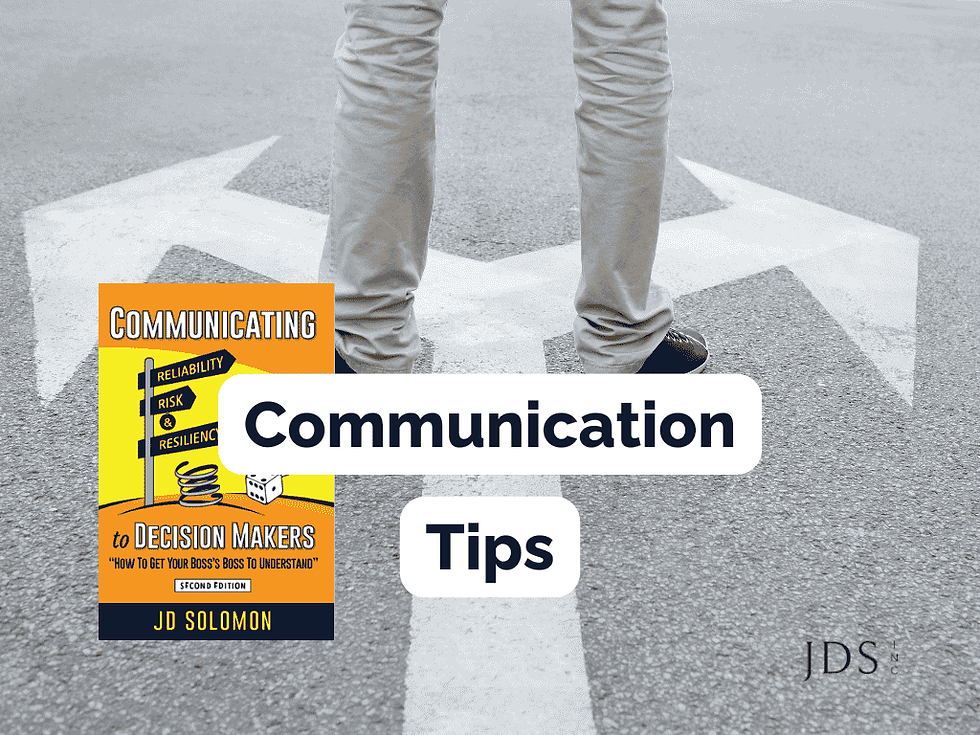What Hurricanes and Fishing Teach Us About Risk and Project Development
- JD Solomon

- Oct 9, 2023
- 3 min read
Updated: Oct 10, 2023

Surf fishing on the South Carolina coast is a much different experience in 2023 than in 2022. The difference provides some valuable insights into risk models and system analysis. New project development benefits greatly from this simple analogy.
Recent Hurricanes Impact Surf Fishing
On Friday, September 30, 2022. Hurricane Ian made landfall near Georgetown, SC. Hurricane Ian impacted the South Carolina coast with strong winds and torrential rainfall. Local surf fishermen report the negative impacts from the aftermath of Ian as the worst in memory.
Hurricane Lee passed parallel to the South Carolina coast on September 9 and 10. The surf fishing since Hurricane Lee has been some of the best in memory.
Key Factors That Impact Surf Fishing
Like any complex model, catching fish in the surf is impacted by several key factors. In South Carolina, the primary factors are:
Water temperature
Wind speed
Wind direction
Tides
Baitfish presence
Bait type
Bottom Structure
Ideally, the input factors would be "independent," meaning a given factor is not directly correlated to another. In reality, most inputs have some correlation with one another.
Using System Analysis to Assess Probabilities and Possibilities
System analysis plays a pivotal role in all types of decision making. In risk analysis, events are often categorized into normal and rare events based on their probability of occurrence. The interaction between these two types of events adds complexity to risk analysis.
Defining Normal, Rare, and Cascading Events
Normal Events
Normal events are routine occurrences with a high probability of happening within a given timeframe. These events are typically associated with everyday operations and are considered manageable within the framework of standard risk management practices. Tropical storms and low-category hurricanes are normal events that occur every fall on the South Carolina coast.
Rare Events
Rare events have a low probability of occurring but can have severe consequences when they do happen. These events are usually considered outliers. Category 3, 4, and 5 hurricanes are rare events on the SC coast. However, the fact that they commonly strike every 10 to 20 years does highlight the subjectivity of a "rare" event.
Cascading Events
Cascading events result from or are triggered by other events. A rare event usually unfolds and leads to a chain reaction of additional events. Chaos and disruption follow. In the case of Hurricane Ian in 2022, the disruption to local fishing resulted from the cascading events following the rare event.
Typical Risk Models Separate Normal and Rare Events
Normal events and rare events are typically modeled separately due to their distinct characteristics and probabilities. Normal events are often handled using traditional statistical methods. These methods assume that events are predictable.
Rare events require specialized techniques because they do not conform to traditional statistical assumptions. These techniques focus on the tails of the probability distribution, where occurrences are unpredictable.
Gaps Occur When Interactions Are Not Modeled Together
Modeling normal and rare events separately leads to significant gaps in risk analysis. The interaction between normal events and rare events is ignored. Specifically, cascading effects of rare events impact normal events.
Statistical Independence in System Models
Statistical independence refers to events that are not influenced by each other. Most risk models assume independence between events to simplify calculations and reduce complexity. However, this assumption does not hold in the real world, especially when considering the interaction between normal and rare events.
Is the Assumption of Independence a Bad One?
Assuming independence between events can be a simplification that facilitates quick prioritization of resources. Sometimes, decision makers cannot fully understand complexities until they see them. In other cases, biases from other similar events override concerns. However, ignoring dependencies leads to underestimation of risk and the potential for unexpected consequences.
How Are Surf Fishing and Project Development Connected?
The input factors are different when considering surf fishing and new project development. However, both share a collection of input factors that produce outcomes from a system. When trying to simplify complexities and predict outcomes, both share the need to consider normal, rare, and cascading events. Context matters. Our simplifying assumptions and biases are the root cause of poor predictions of an uncertain future.
Moving Forward By Gaining Expertise
Surf fishing on the South Carolina coast is a much different experience in 2023 than in 2022. The difference provides some valuable insights into risk models and system analysis. The specific inputs for surf fishing and new project development are different. However, each behaves as a complex system. While it is indeed possible to overthink complexity on the front end, considering the interactions of the interrelated parts after-action is how we learn. And develop what we call expertise.
JD Solomon Inc. provides solutions for program development, asset management, and facilitation solutions at the nexus of facilities, infrastructure, and the environment. Subscribe for monthly updates related to our firm.
JD Solomon is the author of Communicating Reliability, Risk & Resiliency to Decision Makers: How to Get Your Boss’s Boss to Understand and Facilitating with FINESSE: A Guide to Successful Business Solutions.










Comments